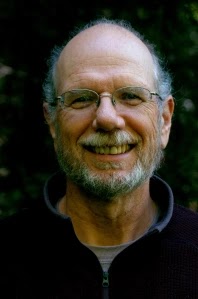Please enjoy the latest from my author interview series from the past:
Jim Nelson’s new novel, The Bridge Daughter, was released last month. This alternate history/science fiction tale is a bit of a departure for him genre-wise and he talked to me about that and about his writer’s journey.
Do you know what genre you are going to write in before you start, figure it out as you go, or only decide what it is after it’s finished?
For Bridge Daughter, the genre kind of came and found me. The idea of a world where bridge girls are surrogates for their mothers, carrying their mothers’ child to birth, is not subject matter I’d normally write, but I was fascinated with the concept and the character. When I put it all together and began writing chapters, I realized it would be considered science or speculative fiction. But I wasn’t thinking of that when I started.
What other genres do you write in and did you write in that genre since you began writing?
I was a huge science fiction fan in my youth, but other than a terrible short story I wrote decades ago, I never took a stab at writing in the genre. Most of my work would be considered straight-ahead fiction, although some of it veers into the absurd (Edward Teller Dreams of Barbecuing People, my short story “A Concordance of One’s Life”).
Writing Bridge Daughter has made me re-think writing science fiction, and I’m now sketching ideas for another book in the genre. Going back to science fiction feels a little like returning to my hometown as an adult an re-seeing it all through new eyes.
When did you begin writing and when did you decide to work toward publication? What has that journey been like?
I grew more serious about my writing when I was in my late 20s. I’d started a web site in 1995, what we’d today call a blog, but this was before that word existed. Writing regularly for it got me thinking of authoring stories and novels. My first serious attempt at a novel (Edward Teller Dreams) I started in 1999, although I only published it in 2014, so that gives you an idea of how rocky the journey’s been.
Do you read in the same genre(s) you write in? Are there particular authors who inspire you?
One science fiction author who inspired Bridge Daughter in an oblique way was William Gibson, a writer I admire a great deal. His early cyberpunk novels were a blast of fresh air in the 1980s. I was especially drawn to their near-future feeling, the way their world did not seem wildly alien to the world we lived in back then, just more gritty and claustrophobic. His world was the 1980s fast-forwarded instead of a new world invented from the top down. That partially inspired me to set Bridge Daughter in a world almost exactly as our own, save for the biological difference.
Tell us a bit about your most recent book. Can you share an excerpt?
Bridge Daughter regards a 13 year-old girl named Hanna who learns she is a “bridge daughter,” that she has been carrying her mother’s fetus since birth. In a few months she will grow visibly pregnant, give birth, and die, leaving her parents with their “real” child. Hanna refuses to accept her fate and is determined to find a way to live to adulthood.
Hanna had a vague idea about bridge parties. She’d heard the term many times. She knew it didn’t involve cards, that was a nervous slip on her part. She also knew a bridge party was for adults and not children. In particular, it was not for the bridge daughter, at least in the sense that the bridge daughter did not participate in it.
Family television shows often featured episodes about bridge parties. Hanna never understood the fuss. The bridge daughter would sit off to the side staring into the camera, pregnant and mute, as she always did in these TV shows. Family and neighbors arrived at the house with food, flowers, and wine. Every so often, the bridge daughter would rise from her isolated chair and go about the party gathering dirty plates and discarded wrapping paper. If the party went late, the bridge daughter would be sent to her bedroom while the revelry continued.
Often in these television shows some major dramatic moment would occur. The family doctor, Scotch-and-soda in hand, would let slip he’d diagnosed the father with cancer. Or the eldest sister would announce she’d been accepted to a prestigious university like Harvard or Stanford. The bridge daughter never spoke, of course. On television, everything important happened to other people, never the bridge daughter.
Hanna never quite understood why they were called “bridge parties.” The bridge daughter had little to do in these TV shows. She stood to one side while the rest of the family went through their weekly crises and upheavals. The bridge daughter served dinner and cleaned the house and answered the door when the bell rang. On shows set in the costumed past, she darned socks and tended the sheep pen and threw logs on the fire when the flames drew low. Even that afternoon at the bakery, a few bridge daughters were helping their mother with the day’s errands. Mute and deferential, clad in neutral-color dresses and soft-soled shoes, they were easily overlooked, but not by Hanna.












